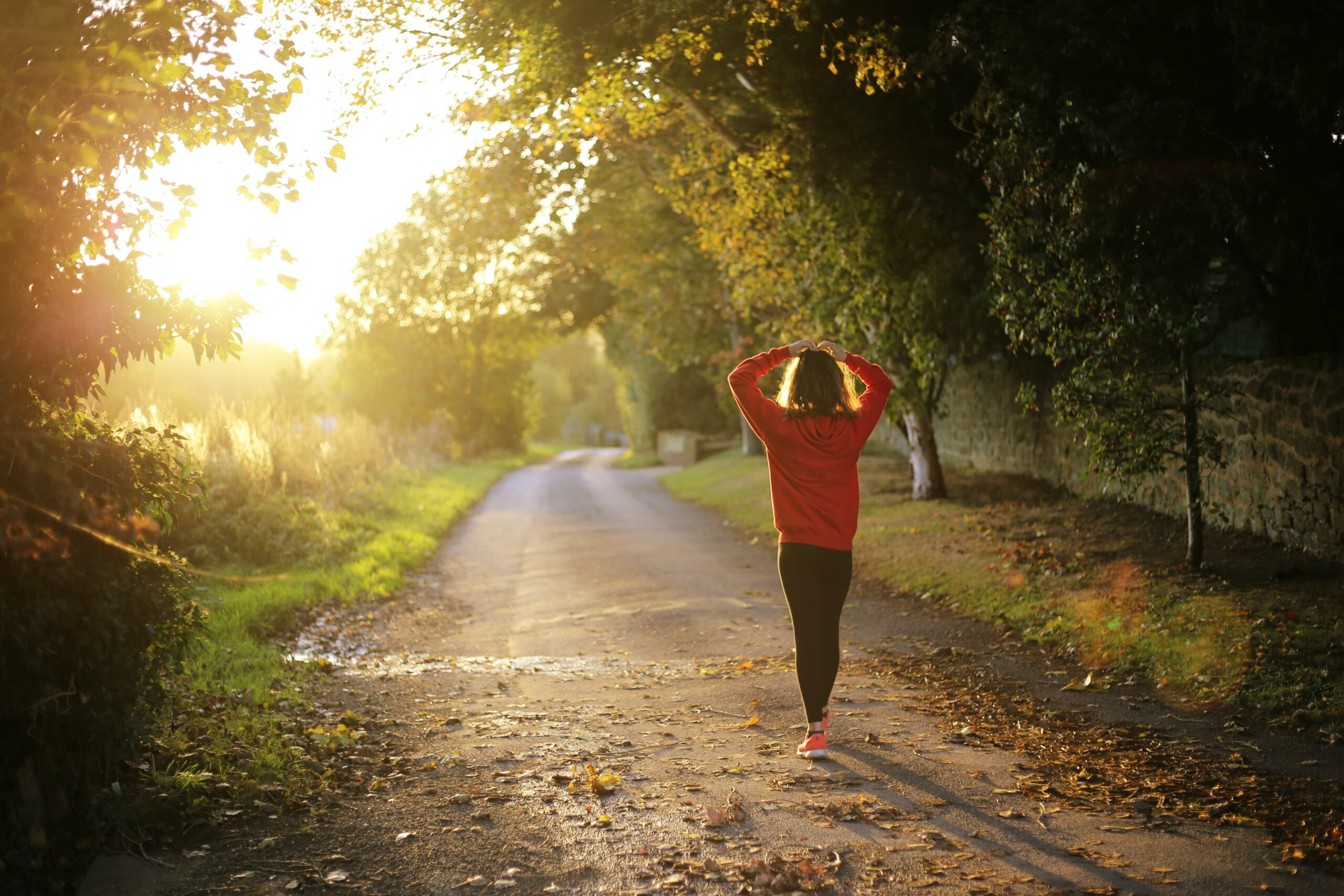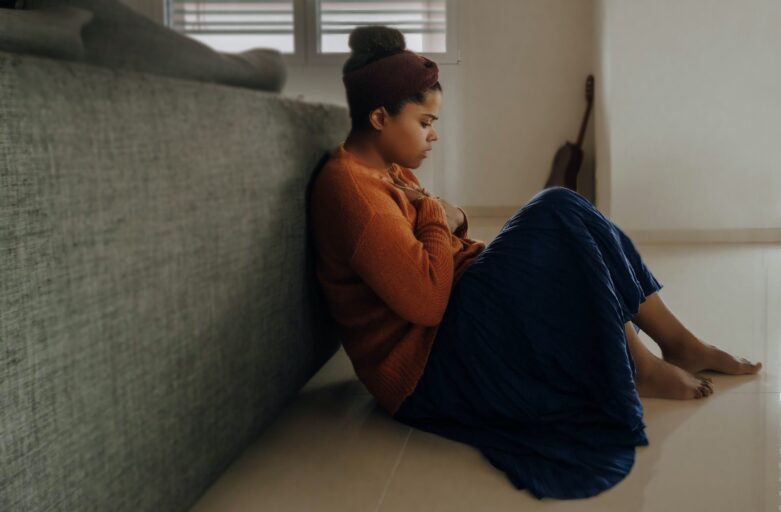Since November 2, 2022 was National Stress Awareness Day, I wanted to talk about it in regards to climate change. Of course, there are many causes of stress, but I realized that in recent years, I’ve become increasingly stressed about the state of climate change. And if you are, too, you and I are not the only ones. In a 2020 poll conducted by the American Psychology Association (APA), 67% of Americans were somewhat/extremely anxious about climate change’s impact on the planet and 55% were somewhat/extremely anxious about its impact on their own mental health. There is a name for this bleak perspective: eco-anxiety. Because it’s a relatively new phenomenon, coping with eco-anxiety is also new territory. Unlike the stresses that come from personal circumstances and interpersonal relationships, the source of eco-anxiety is omnipresent and multifarious. How can we tackle an issue that is so much bigger than ourselves?
The APA defines eco-anxiety as “the chronic fear of environmental cataclysm that comes from observing the seemingly irrevocable impact of climate change and the associated concern for one’s future and that of next generations.” Though not yet an official illness in the DSM-5 (the manual for mental illness), the effects of eco-anxiety are nothing to be ignored. The symptoms include stress, anxiety, feelings of helplessness, feelings of suffocation, sleep disturbances, and nervousness. In some cases, it can be even disabling or lead to some form of depression.
My Eco-Anxiety Experience
There have been several occasions where I’ve had mental breakdowns, sometimes accompanied by tears, while thinking about climate change. When I reflect on the massive wasteful systems of capitalism, the uphill climb of convincing others to make changes, the feeling that anything I do won’t make a difference – all of these things could fill me with despair. In some instances, I think to myself, “why am I even trying?”
The idea of living sustainably is still somewhat fringe. Much of the developed Western world relies more on personal convenience and individualistic lifestyles that may not align with green progress, so sometimes I wonder if my pushes for sustainability will fall on deaf ears. The idea that some people still deny climate change (especially in America) and that some corrupt rich are willing to look the other way in return for more riches – very disheartening. It’s hard to hope for a better future when so many things are stacked against it. And to me, these despairing thoughts weigh heavy on the mind.
My Observations on Others’ Experience
Aside from my personal experiences, I’ve also heard of and read about individuals and couples that are concerned about bringing children into a “doomed” world, some to the point of deciding against it. This rumination is even more challenging for those who want to have children but feel it would be unjust or amoral to do so, considering the climate catastrophes that may be in store for them. Meanwhile, the parents who’ve already had kids worry greatly about the future their kids will inherit. Will their world be more devastating than it is now?
Eco-anxiety wields its greatest power in the form of hopelessness. Though we can take small actions to make a difference, much of the detriment and devastation remains outside of our immediate control. And it’s very easy to get lost in that helplessness. On top of that, we may have feelings of guilt, of being complicit in environmental harm, even though our hands may be tied. Like mental illness, eco-anxiety can have detrimental or debilitating effects on our lives, but unfortunately, we as a society don’t seem to be prepared to handle such a difficulty.
The Challenges of Psychologically Treating Eco-Anxiety
The intensity of climate change – and the climate activism in response – have notably increased in recent years. Sure, environmental activists have been around for a long time, but the grassroot efforts, protests, and engaged youth have grown with more passion and more fervency.
However, along with this new green wave, came the hidden emotional side effects. And the world of psychology and psychotherapy was not ready for it.
It was only around 2007 when the term eco-anxiety was first used. Then in 2016, an APA poll of therapists found that at least half of the respondents felt ill-equipped to handle clients who were experiencing these negative emotions around the climate crisis. Some therapists don’t know how to deal with their own eco-anxiety, let alone that of their clients. And sadly, there are even therapists that invalidate the feelings altogether, believing that some underlying personal problem is the true culprit, not the climate crisis. To them, climate problems are overexaggerated or delusional and therefore could be dismissed. And as someone who regularly sees a therapist (which I highly recommend to everyone, regardless of the extent of your troubles), dismissal or invalidation only worsens the despair.
So what can we do?

My Tips for Coping with Eco-Anxiety
Disclaimer: I am not a licensed therapist, so please talk to one for professional advice. I am only relaying what has worked for me from my therapeutic journey.
Because the effects of eco-anxiety are similar to that of other anxiety disorders, similar treatments can also be helpful. Practices like meditation, selfcare, exercise, talking to trusted friends or a trusted therapist, and avoiding negative self-talk (i.e. I’m too insignificant to fight climate change and nothing I do will matter).
But I could also refer you to other, more sustainability related, treatments that I’ve tried out and found to be beneficial.
Tips:
- Talking a walk or hike through nature – This can remind you of the beauty you want to protect and renew your admiration for Mother Nature. Additionally, as you soak in the nature, it helps to reflect on this: even though humanity has dropped the ball in earth stewardship, Mother Earth still continues and will always continue to provide. Despite our transgressions towards her, she continues to care for us.
- Believe in your small actions – If you fall into disbelief, remind yourself that small actions DO matter. Many people doing a little is more impactful than a few people doing a lot. And your small action could even have ripple effects that inspires more small actions.
- Focus your efforts – Under the umbrella of climate change and environmental sustainability, there are a number of more specific issues: endangered animals, habitat and ecosystem conservation, air pollution, water pollution, animal testing, greenhouse gases, excess waste, deforestation, natural disasters, labor exploitation, lack of clean energy, ice cap melting causing rising sea levels, fast fashion, over consumption, food scarcity, and the list goes on. But attempting to concern yourself with everything is exhausting; too much weight for you to carry. My suggestion would be to pick your big hitters, the 3 or 4 issues that you relate to the most, and focus your attention there. That doesn’t mean you should ignore the rest other issues, but it just means you dedicate most of your time and resources to your greater passions so that you don’t feel overwhelmed.
There’s Still Hope
Feel free to add your own suggestions in the comments. And remember, you’re not alone. It will take communities, formally recognized or simply those bonded by principle, to make change and do better. You are certainly welcome at the Live Your Best Green community and there exists many more communities, all working together. So if you’re feeling eco-anxious, try out some of these tips, talk things out, and remain hopeful. I believe we can still turn the tide, we can still pull through to build back a healthier society and a healthier planet.
References
Iberdrola: https://www.iberdrola.com/social-commitment/what-is-ecoanxiety
Scientific American: https://www.scientificamerican.com/article/therapists-are-reckoning-with-eco-anxiety/

